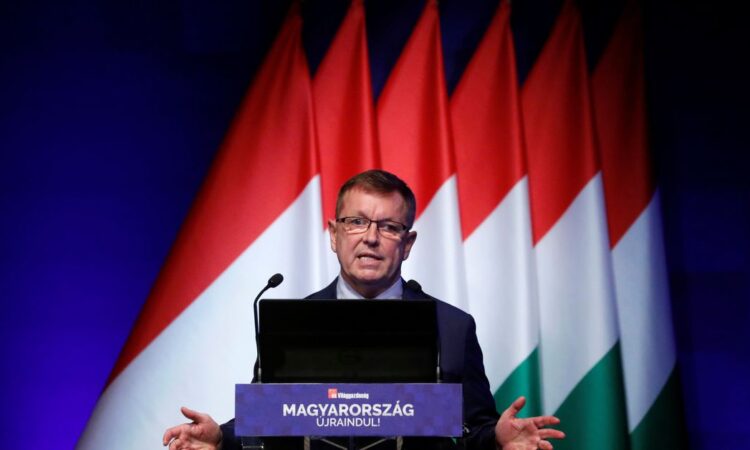
BUDAPEST, June 2 (Reuters) – Hungary should not consider adopting the euro before 2030 as joining the single currency zone before its economy is duly prepared would backfire, central bank governor Gyorgy Matolcsy said on Friday.
Matolcsy said once Hungary reaches about 90% of the EU’s average level in terms of economic development, then the adoption of the single currency could be put on the agenda.
“It is dangerous to enter the club of the rich while the economy is unprepared for it,” Matolcsy told state radio.
“Perhaps around 2030 or a bit later we could reach … 90% of the EU’s average in terms of development, then it’s worth entering (the euro zone) as the euro has many advantages,” Matolcsy said.
But until then, it is worth using the extraordinary room of manoeuvre the Hungarian central bank has to boost the economy, he added.
The National Bank of Hungary is currently fighting the EU’s highest inflation rate, running at an annual 24% in April, while the economy is slowing sharply.
The bank cut its one-day deposit rate by 100 basis points to 17% last month, launching a policy-easing cycle as high interest rates have practically stifled borrowing.
Last week Finance Minister Mihaly Varga said Hungary was working to meet the conditions of euro entry but had no target date to adopt the single currency and the issue was not on the agenda for now.
Among Hungary’s EU neighbours, Austria, Croatia, Slovenia and Slovakia have already adopted the euro.
Reporting by Krisztina Than; editing by Mark Heinrich
Our Standards: The Thomson Reuters Trust Principles.





